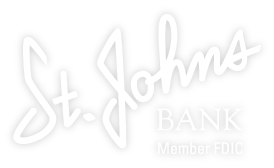Financial advice for young adults entering the work force
Laying the right foundation as you start your career is the key to future financial success, and at this lifestage, TIME is your greatest asset. Consider that each dollar you save in your 20s can be worth ten times as much as one saved in your 40s. Through the magical power of compounding, the beginning of your working life is the prime time to start saving towards retirement—even though many people don’t want to think about, or worse yet, act on this principle.
Tips for Effective Financial Management
- Pay off your credit card debt. It is senseless to pay 13 – 20 percent interest on credit card payments while saving money can actually earn interest.
- If you cannot pay off your credit card debt, pay more than the minimum payment each month, which in some cases will only cover the interest charges.
- Don’t worry too much about paying off student loans early. These normally have a much lower interest rate than credit cards. By making low payments on student loans, you’ll have more money to reduce high-interest credit card debt.
For help determining the best accounts and products for sound and productive money management during your Getting Started Lifestage, please call us at (314) 428-1000 or contact us.
During this time, young adults have the exciting task of learning how to manage the spending and saving of their money within the constraints of their income. Here are some steps to take now to put your financial future on track:
Identify your short, medium and long-term goals and budget your money accordingly
Your short term goals of less than five years might encompass a wedding, honeymoon, furniture or a new car.
Medium term goals could include the purchase of a home and financing your future children’s college education, followed by long-term retirement goals. These goals will help you determine how to spend and save your money.
Build assets through saving at least 10 percent of your income
It may be wise to invest in CDs or money market funds for your short term goals and the stock market for your longer term goals. Historically, the stock market has outperformed other types of investments over comparable time periods, but it’s not for the faint of heart. You may also want to join a 401K plan if available from your employer or open up an IRA account.
St. Johns Bank & Trust Company can help compound your savings with an account that’s right for you:
Certificates of Deposit
- Interest is paid or compounded quarterly
- Interest is earned on the ledger balance
- For CDs of $5,000 or more, you may choose to have your interest credited monthly to a St. Johns Bank checking or savings account
- For CDs of $10,000 or more, you may choose to receive your interest monthly by check
Individual Retirement Accounts
- Interest is earned on the ledger balance
- Interest is compounded quarterly
For a Fixed Rate IRA:
- 12- to 60-month terms are available
- No additional deposits are allowed
For a Variable Rate IRA:
- Additional deposits are allowed, in minimum amounts of $100
- 12-month Variable IRA CD rate is equal to the 18-month fixed rate CD and changes accordingly
Money Market
- Interest is earned on the collected balance
- Interest is paid and compounded monthly
- Tiered interest rates for increasing balance levels
- Unlimited deposits and cash withdrawals (in person or at an ATM)
Establish an emergency fund
A good guide is to save three to six months’ worth of living expenses to cover rent or house payments, utilities, car payments, food, transportation and insurance into a separate bank account that could be easily accessed in the case of job loss or uncovered medical expenses. Don’t use the money for anything else.
St. Johns Bank & Trust Company recommends these accounts for the establishment of your emergency fund:
Statement Savings
- Six free debit transactions per month. A $2 fee will be assessed for each additional debit.
- Interest is earned on the ledger balance
- Interest is paid and compounded quarterly
- Just a $200 minimum daily balance required to avoid a monthly fee of $3
- Statements are mailed quarterly, fees assessed monthly
Money Market
- Interest is earned on the collected balance
- Interest is paid and compounded monthly
- Tiered interest rates for increasing balance levels
- Unlimited deposits and cash withdrawals (in person or at an ATM)
Borrow wisely
Avoid high-interest credit cards and pay off your credit card debt monthly. Work with St. Johns Bank for your major lending needs including personal and vehicle loans, home mortgages and home equity loans or lines of credit.
Mortgage Loans
- Fixed-Rate Loans
- Construction Loans
- Lot Loans
We offer mortgage solutions for primary residences, secondary residences, and investment properties in the Greater St. Louis area. If you’re a developer or independent builder, St. Johns Bank offers customized financing for your homebuyers.
Understand your credit report
Your financial behavior over the past seven years, including how much credit you have, how long you've had it and whether you pay your bills on time is information included in your credit report.
Three credit reporting agencies — Equifax, TransUnion and Experian — maintain these reports, and lenders buy them to help them decide whether to offer you a pre-qualification. Your credit report also carries your credit score ranked between 300 and 850 that many lenders use to decide whether you are creditworthy and will repay a loan. Your credit score can also influence the interest rate you pay. In many cases, the higher your score, the lower your interest rate.
Your credit score is available from the three credit reporting agencies:


